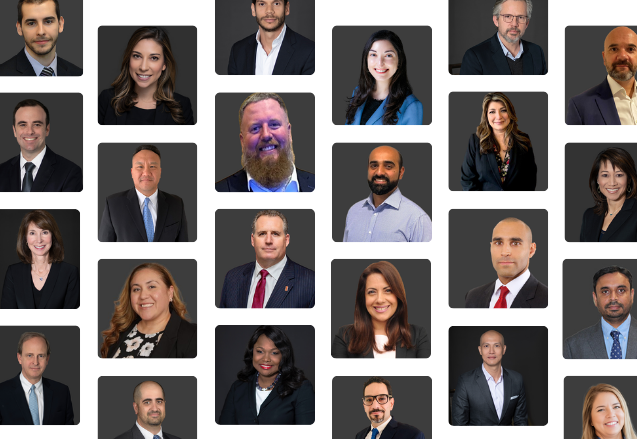This site uses cookies to provide you with a more responsive and personalized service. By using this site you agree to our use of cookies. You can learn more about our use of cookies and similar technologies and your choices by reviewing our Privacy Policy. By clicking “I agree” you agree to our use of cookies and similar technologies.
“Chipping” Away at the Right to Fundamental Research?
New Export Control Regulations Must Be Examined to Ensure Protection of International Research Collaborations
U.S. government actions to enhance and protect U.S. technological innovation have been regularly featured in recent headlines. With the consistency of a drumbeat, press releases have announced new federal prosecutions, coordinated federal agency regulatory action, and bipartisan Congressional legislation designed to boost U.S. technology and protect it from malign foreign influences.
As a matter of fundamental U.S. policy, the federal government has made clear that promoting open and ongoing international collaborations in research is a key principle supporting U.S. research and a leading catalyst of continued American leadership in innovation and technological advancement.
A core part of U.S. universities’ missions is to engage in fundamental research, defined as research in science, engineering, or mathematics, the results of which ordinarily are published and shared broadly within the research community, and for which the researchers have not accepted restrictions for proprietary or national security reasons.[1]
Against this backdrop and as part of this “All of Government” approach to protecting U.S. technology, in October 2022, the U.S. Department of Commerce’s Bureau of Industry and Security (BIS) issued a new regulation that requires a BIS export license for any U.S. person to provide information that would “support” the development or production of any chip at a “facility” in China that also produces certain advanced chips, regardless of whether such information is “subject to the Export Administration Regulations (“EAR”) or “not subject to the EAR”. 87 FR 62186.[2]
In November 2022, the Deputy Assistant Secretary, Export Enforcement, BIS, gave a speech to university attorneys at a conference in Washington DC, emphasizing that the new regulation applies to universities, even when the information is “not subject to the EAR.”
As written and discussed by BIS leadership, not only does this new regulation significantly expand the usual regulatory jurisdiction of BIS, but also potentially imposes new and significant restrictions on the ability of U.S. universities to conduct free and open fundamental research, which in turn would undercut a key principle behind America’s leadership in technological innovation.
As drafted, it is unclear whether the regulation could bar a faculty member who had engaged in fundamental research regarding chip technology from sending his published research results to the People’s Republic of China as described in the regulations. When asked about this at a recent conference, BIS Deputy Assistant Secretary stated that “BIS had not yet decided whether the new regulation would apply to the results of fundamental research.”
Given the importance of fundamental research for universities, it is critical for BIS to clarify its position in this regulation (and, as appropriate, for further regulation), in order to ensure universities can further develop research consistent with U.S. priorities and compliant with U.S. law.
Background and the big picture:
The BIS[3] administers and enforces the Export Administration Regulations.[4] The EAR primarily covers the export of “dual-use” commodities, software, and technologies. Dual use items are those that have predominantly commercial uses, but may also have the potential for military application.
“Subject to the EAR” is a term used to describe those items and activities over which BIS exercises regulatory jurisdiction.[5] Conversely, items and activities that are not subject to the EAR are outside the regulatory jurisdiction of the EAR and are not affected by these regulations.[6] The items and activities subject to the EAR are described in §§ 734.2 through 734.5 and 734.9 of 15 CFR Subchapter C.[7]
There are a number of exclusions from the jurisdiction of the EAR that are critical to universities set forth in 15 CFR 734.3, including Information and “software” that:
- Are published, as described in 734.7;
- Arise during, or result from, fundamental research, as described in 734.8;
- Are released by instruction in a catalog course or associated teaching laboratory of an academic institution; 734.3(b)(3).
Why it matters:
According to the explicit provisions of the EAR, “‘Technology’ or ‘software’ that arises during, or results from, fundamental research and is intended to be published is not subject to the EAR” and, thus, are outside the regulatory jurisdiction of the EAR.[8]
Likewise, teaching technology as part of university catalog courses, including courses offered globally over the internet, and widely sharing the results of university research published through professional peer-reviewed journals and open scientific conferences around the world, are all principles that are core to the academic mission of American universities.
What’s next:
Given the potential implications, Guidepost has written BIS for formal clarification, because as drafted and explained by BIS leadership, the BIS regulation may infringe on fundamental research in an unprecedented way. With BIS increasing regulatory actions relating to China, it is critical that BIS clarify the scope of these new regulations to ensure that fundamental research can appropriately continue in a way that safeguards innovation and protects national security.
It is also worth noting that while the new regulations are now effective, BIS has opened these regulations for public comment[9] through December 12, 2022.[10] We would encourage universities to comment on the new regulation to clarify the applicability of long-standing fundamental research, published information and course catalog exclusions to the EAR and BIS jurisdiction.
[1] 15 CFR 734.8 (c). https://www.ecfr.gov/current/title-15/subtitle-B/chapter-VII/subchapter-C/part-734
[2] https://www.federalregister.gov/documents/2022/10/13/2022-21658/implementation-of-additional-export-controls-certain-advanced-computing-and-semiconductor
[3] https://www.bis.doc.gov/index.php
[4] https://www.ecfr.gov/cgi-bin/text-idx?SID=cea53ac5373084be5ccf7175622b9979&mc=true&tpl=/ecfrbrowse/Title15/15CVIIsubchapC.tpl
[5] 15 CFR 734.2(a)(1). https://www.ecfr.gov/current/title-15/subtitle-B/chapter-VII/subchapter-C/part-734
[8] 15 CFR 734.2(a)(1). https://www.ecfr.gov/current/title-15/subtitle-B/chapter-VII/subchapter-C/part-734
[9] https://www.regulations.gov/commenton/BIS-2022-0025-0002
[10]https://www.federalregister.gov/documents/2022/10/13/2022-21658/implementation-of-additional-export-controls-certain-advanced-computing-and-semiconductor

Julie Myers Wood
Chief Executive Officer
As the Chief Executive Officer of Guidepost Solutions, I focus on helping corporations resolve problems with government agencies, and ensure they are proactively addressing compliance requirements. Prior to joining the private sector, I held leadership positions with the U.S. Departments of Homeland Security, Commerce, Treasury and Justice. This includes serving as the Head of Immigration and Customs Enforcement, Homeland Security’s largest investigative component, as well as the Assistant Secretary for Export Enforcement and the Chief of Staff for the Criminal Division at the Department of Justice. Throughout my government and private sector career, I have helped develop, implement and execute compliance programs and crisis management plans and responses across a wide range of industries for numerous companies. I am nationally recognized as a speaker for my expertise on compliance, security, immigration and other law enforcement issues and have testified before Congress.

Robert Roach
Senior Advisor
Robert Roach is an internationally recognized expert on matters involving compliance, enterprise risk management, monitoring and internal investigations. As a member of Guidepost Solutions’ Risk and Compliance and National Security teams, he is available to develop compliance, risk management and monitoring programs for U.S. domestic and international organizations in a number of complex regulatory areas, including: antitrust, export control and trade sanctions laws, data privacy, equal opportunity laws, the Foreign Corrupt Practices Act and other international antibribery laws, higher education and research compliance laws, supply chain ethics and international fair labor standards compliance. Prior to joining Guidepost, Mr. Roach served as the Vice President, Chief Global Compliance Officer at New York University, the largest private university in the U.S where he was responsible for establishing and leading NYU’s compliance programs at three degree-granting campuses in New York, Abu Dhabi, and Shanghai and 11 additional global academic sites.


